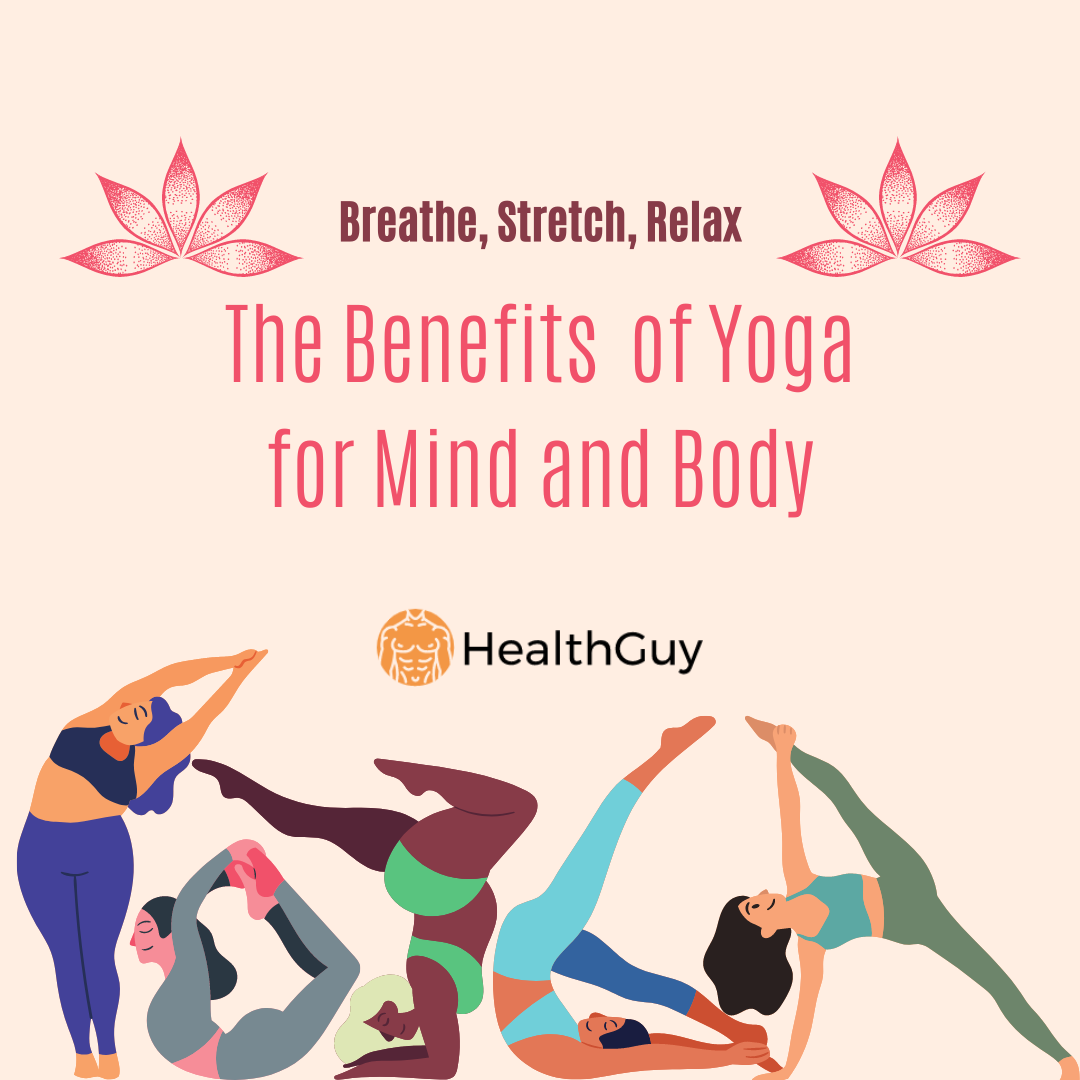
Breathe, Stretch, Relax: The Benefits of Yoga for Mind and Body
Yoga is a practice that has been around for thousands of years, and with good reason. At its core, yoga is a form of exercise that involves stretching and moving the body in various ways, while also emphasizing deep breathing and mental focus. It offers a wide range of physical and mental benefits, including increased flexibility, strength, and stress reduction.
The physical benefits of yoga are numerous. By stretching and lengthening the muscles, yoga can increase flexibility and range of motion, which can help reduce the risk of injury and improve overall physical performance. Many yoga poses also require you to hold your body weight in certain positions, which can help build strength and tone muscles.
In addition to the physical benefits, yoga can also have a profound impact on mental health and well-being. By focusing on deep, diaphragmatic breathing and being present in the moment, yoga can help reduce stress and anxiety. The relaxation and stress-reducing effects of yoga can also lead to improved reduce better digestion, and reduced chronic pain.
There are many different types of yoga, and each has its own unique benefits and focus. Some types of yoga, such as Hatha yoga, are more gentle and focused on relaxation and stress reduction, while others, such as Vinyasa yoga, are more vigorous and aimed at building strength and endurance.
Regardless of the type of yoga you choose to practice, it is important to approach it with an open mind and a willingness to listen to your body. Yoga should never be painful or uncomfortable, and it is important to take breaks or modify poses as needed to avoid injury.
To get started with yoga, it is best to find a class or instructor who can guide you through the poses and provide feedback on your form. Many gyms and community centres offer yoga classes, and there are also many online resources available for those who prefer to practice at home.
In this article, we will delve into the myriad advantages that yoga offers and examine how it can enhance your physical and mental wellness.
Flexibility
One of the most well-known benefits of yoga is improved flexibility. The practice of yoga involves stretching and lengthening the muscles, which can increase your range of motion and improve your overall flexibility. This can be especially helpful for people who have tight or stiff muscles, which can lead to discomfort and limited mobility.
Strength
In addition to improving flexibility, yoga can also help build strength. Many of the poses in yoga require you to hold your body weight in certain positions, which can help build muscle strength and tone. This can be especially beneficial for people who are looking to improve their overall fitness or who are recovering from an injury.
Stress Reduction
Another major benefit of yoga is stress reduction. The practice of yoga encourages you to focus on your breath and be present at the moment, which can help calm the mind and reduce stress and anxiety. In addition, physical movement and stretching can help release tension and promote relaxation.
Improved Breathing
Yoga also emphasizes deep, diaphragmatic breathing, which can improve your lung capacity and increase the flow of oxygen throughout your body. This can help you feel more energized and focused, and can also improve your overall respiratory health.
Lower Blood Pressure
Studies have shown that regular yoga practice can help lower blood pressure and reduce the risk of heart disease. This is likely due to the stress-reducing effects of yoga, as well as the physical benefits of increased flexibility and strength.
Better Sleep
Many people find that practicing’s yoga before bed can help them fall asleep more easily and sleep more soundly throughout the night. The relaxation and stress-reducing effects of yoga can help calm the mind and body, making it easier to fall asleep and stay asleep.
Improved Digestion
Certain yoga poses, such as twists and forward folds, can help stimulate the digestive system and improve digestion. This can be especially helpful for people who suffer from digestive issues or who want to improve their overall gut health.
Pain Relief
Yoga can also be a helpful tool for managing chronic pain. The gentle stretching and movement can help increase blood flow and promote healing in the affected areas. Additionally, the stress-reducing effects of yoga can help reduce the perception of pain and improve the overall quality of life.
Conclusion
Overall, the benefits of yoga are numerous and varied. Whether you are looking to improve your physical fitness, reduce stress and anxiety, or manage chronic pain, there is likely a type of yoga that can help you achieve your goals. Remember to listen to your body, take breaks as needed, and always stay hydrated during your practice. With consistent practice, you can reap the many benefits of yoga and improve your overall health and well-being.
